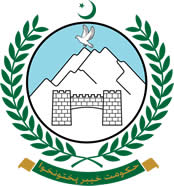Vision, Mission & Scope
Department of Entomology
Vision:
To provide and promote quality education and research with the aim to develop trained and skilled professionals in various field of entomological sciences through teaching, innovative research and effective outreach initiatives.
Mission:
To produce quality graduates across various disciplines of Entomology, equipping them with the expertise to assist farmers in addressing pest-related challenges and emerging issues in the field.
Scope:
Entomology is one of the core disciplines of agriculture. It has a vast scope across various fields, including agriculture, medicine, environment, and industrial applications thus plays a crucial role in many aspects of human life and ecological balance.
- Agriculture: Entomology helps in understanding insect pests, their behavior, and management strategies to minimize crop damage and promote sustainable agriculture.
- Public Health: Entomologists study insects that transmit diseases like mosquitoes (malaria, dengue), sand fly (Leshmenia), ticks (Lyme disease), and flies (typhoid, cholera).
- Environmental Conservation: Entomology informs strategies for conserving and managing ecosystems, including pollinator conservation, biological control, and invasive species management.
- Forensic Science: Entomologists apply their knowledge to aid in forensic investigations, such as estimating post-mortem intervals based on insect activity.
- Food Safety: Entomologists work to prevent insect contamination of food products, ensuring safety and quality for consumers.
- Biological Control: Entomology involves the use of beneficial insects to control pest populations, reducing the need for chemical pesticides.
- Ecological Research: Entomologists study insect ecology, behavior, and evolution, contributing to our understanding of ecosystems and biodiversity.
- Biotechnology: Entomology has applications in biotechnology, such as the development of insect-resistant crops and biopesticides.
- Climate Change: Entomologists investigate the impacts of climate change on insect populations, ecosystems, and human societies.
Area of Job Opportunities
- Universities and Educational Institutions
- Provincial Agriculture Research System,
- Agriculture Extension Department,
- Health Department (Dengue / Malaria Vector Control Program),
- Atomic Energy Commission (Agriculture Division)
- National Agriculture Research Council (NARC)
- Pakistan Science Foundation (Pakistan Museum of Natural History),
- Federal Seed Certification Department
- Federal Plant Protection Department (Quarantine and Anti locust wing)





